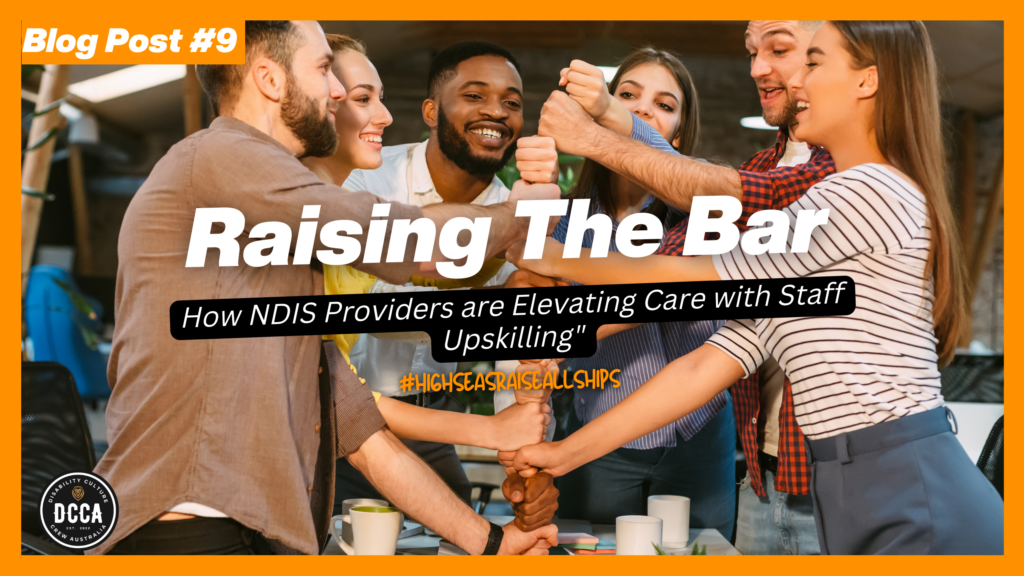
The National Disability Insurance Scheme (NDIS) has ushered in a new era of care and support for individuals living with disabilities in Australia. Under the NDIS framework, participants are granted greater autonomy and choice in their support services, and this has necessitated a fundamental shift in the way disability service providers and agencies operate. To meet the demands of a changing landscape and ensure the highest quality of care, upskilling staff is no longer an option; it’s a necessity.
The Evolution of Disability Care
Before the NDIS, disability care in Australia operated under different models, where services were often standardized and not as tailored to individual needs and preferences. The NDIS, with its emphasis on person-centered care and participant choice, has transformed the industry. Participants can now choose their support providers and exercise greater control over their support plans. This change is empowering for individuals, but it also places a higher responsibility on service providers.
Why Upskilling Is Essential
To provide world-class care under the NDIS, disability service providers and agencies must invest in upskilling their staff. Here’s why it’s crucial:
- Meeting the Diverse Needs of Participants: NDIS participants have diverse needs and goals. Support workers and service providers need the skills to cater to this diversity effectively. Upskilling ensures that staff are better equipped to understand, respect, and address these individual needs.
- Adhering to NDIS Values: The NDIS operates on the values of choice, control, and independence. To honor these principles, staff need to be trained in providing support that genuinely empowers participants and respects their autonomy.
- Legal and Ethical Compliance: The NDIS framework comes with legal and ethical obligations. Proper upskilling ensures staff are aware of and compliant with these obligations, such as privacy and confidentiality requirements.
- Enhancing Quality of Life: Upskilling isn’t just about compliance; it’s about enhancing the quality of life for participants. Well-trained staff can provide better care, leading to improved outcomes for those they support.
- Staying Competitive: In a competitive marketplace, agencies and providers that invest in staff development can stand out. Participants are more likely to choose organizations that demonstrate a commitment to excellence.
Key Areas of Upskilling
Person-Centered Care: Training staff to focus on the individual needs and goals of participants is essential. This includes actively involving participants in decision-making about their care.
Effective Communication: Communication skills are vital for building strong relationships with participants. Staff should be trained to listen actively, empathize, and adapt communication to participants’ preferences.
Cultural Competence: Australia is culturally diverse, and participants come from various backgrounds. Staff need to understand and respect cultural differences, ensuring that care is culturally sensitive.
Documentation and Reporting: Proper record-keeping and reporting are essential for accountability and ensuring that care plans are effective. Staff should be trained in documenting their work accurately.
Technology Proficiency: As technology becomes more integrated into care delivery, staff should be trained to use digital tools effectively, including participant management systems and assistive technology.
A Win-Win for All
Upskilling benefits not only participants but also service providers and agencies. It leads to improved participant outcomes, enhanced staff satisfaction, and a stronger reputation in the industry. With the NDIS transforming the disability care landscape, investing in staff development is not just a necessity; it’s a pathway to delivering world-class care that truly changes lives.

Leave a Reply